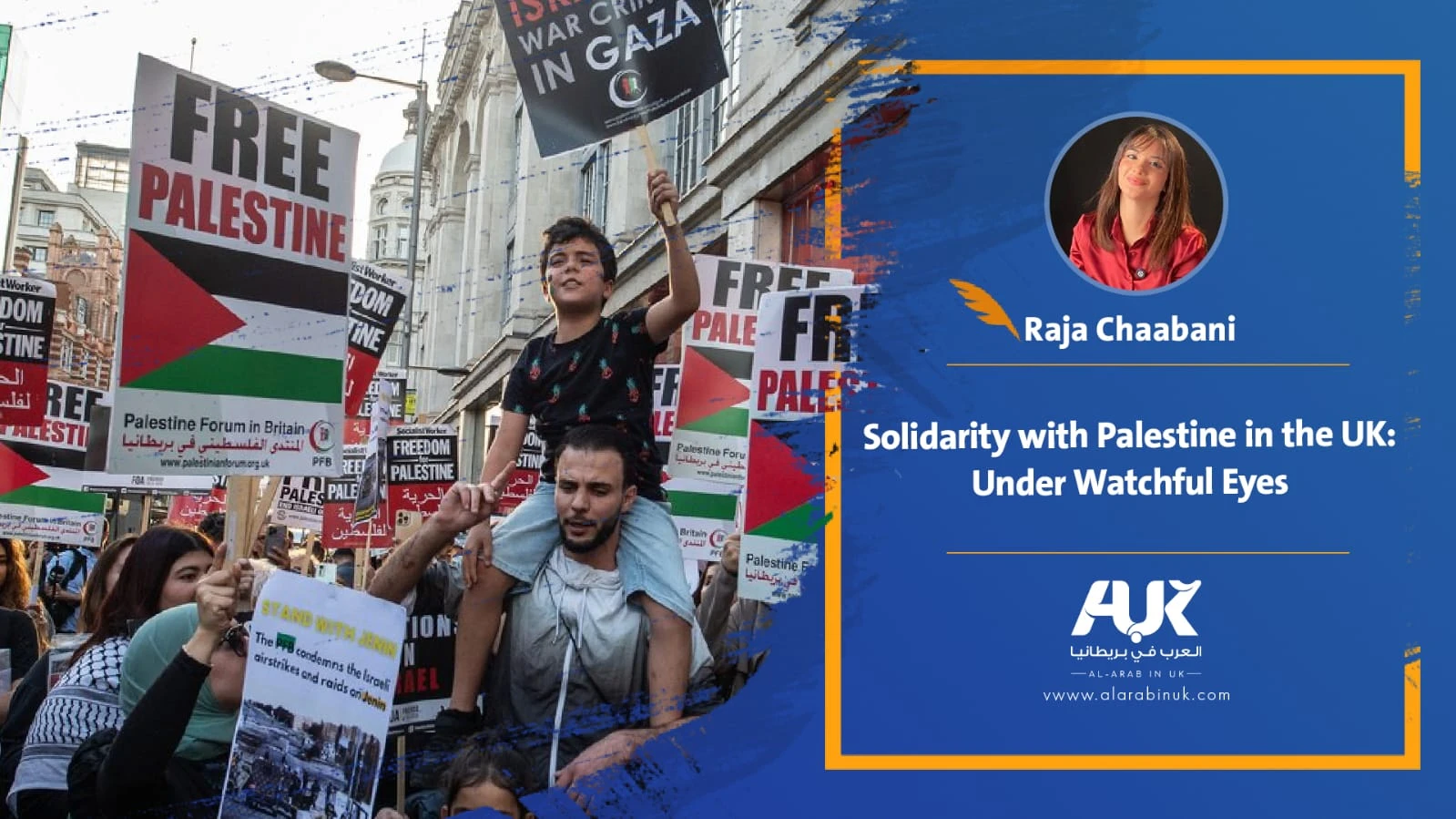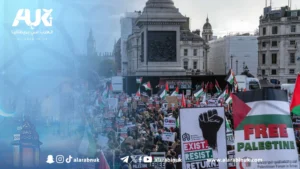Solidarity with Palestine in the UK: Under Watchful Eyes

By the underground stations, outside embassies, on chilly university lawns, and across the weary pavements of Britain—
they stood, raised their flags, and chanted: “Free Palestine.”
In the shadow of Westminster’s silence, dozens of voices—Arab, British, migrant, and student—rose not just against the bloodshed in Gaza, but against the political complicity that enables it.
But even as their chants echoed, solidarity became something dangerous: a gesture tracked, silenced, and increasingly punished.
The University as a Site of Control

Since the early days of the 2023 war on Gaza, British universities have issued quiet yet firm warnings:
Don’t hang political banners.
Don’t use university platforms for solidarity.
Avoid “controversial” discussions in class.
Behind these warnings lay a sharp message: “Keep Palestine out of sight.”
What followed was a campaign of intimidation.
Female students were interrogated.
Others were excluded from student spaces.
Some were simply made to feel unsafe for saying: This is a genocide.
As if standing with Gaza was not only political, but immoral.
From Protest to Profiling
Students and activists who joined protests soon found themselves under a different kind of spotlight.
Their social media posts were flagged.
Their employers were notified.
Their scholarships were questioned.
Their faces were captured on CCTV—not as citizens in protest, but as subjects under surveillance.
This wasn’t the overt policing of riot shields—it was something quieter:
a surveillance embedded in everyday structures—HR departments, academic protocols, and media framing.
A system where neutrality means silence,
and speech is treated like sedition.
The Language of Erasure
In most mainstream British media, Palestine isn’t erased—it’s edited.
Not with lies, but with omission.
Not with hatred, but with framing.
The Palestinian is always “the conflict.”
The occupation is always “the backdrop.”
Israel is always “responding.”
In this narrative, the dead child is a number.
The mother’s scream is cropped out of frame.
The flag is always a “symbol of division.”
And yet—resistance finds ways to speak:
Through alternative media, student voices, diasporic networks, digital art, and moments of defiance that the algorithm can’t quite suppress.
Why Is Palestine Still Dangerous?

Because it reminds Britain of its colonial scars.
Because it disrupts the comfort of Western silence.
Because it turns moral mirrors toward uncomfortable truths:
That oppression is not elsewhere—it’s funded here.
That neutrality is not harmless—it’s complicity.
That Gaza’s rubble speaks to more than foreign policy—it speaks to conscience.
Still, They Stand

Palestine has not vanished from Britain.
She walks quietly, her name on a tote bag.
She whispers in spoken-word poetry.
She stands in a hallway poster.
She appears in a hesitant social media post—written at midnight, deleted at dawn.
She is still on the British pavement—
watched, policed, suppressed—
but not forgotten.
She remains where freedom is still uttered,
even if only in a whisper.
Read more
ShortURL ⬇

